Hope and resilience: The lives of older people in Pakistan
Amnesty International's Age Loud! campaign aims to raise awareness about the challenges faced by older people and advocate for their rights
Amnesty International
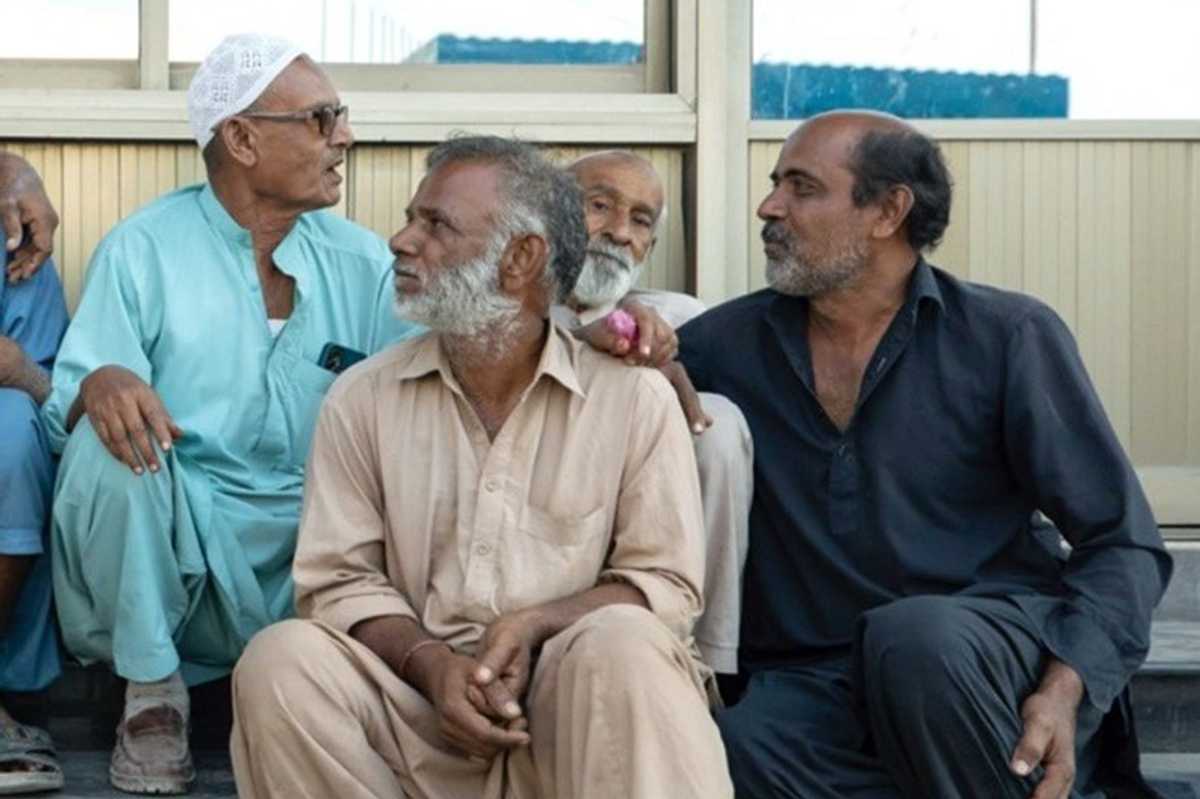
Around the world, ageism and age-discrimination often push older people to the margins of society.
Courtesy: Amnesty International/Khaula Jamil
Every morning, the friends meet at their usual spot near Karachi Port and hope. They hope the day will bring them some work and a small wage, allowing them to eat and to provide for their families. Some days they are lucky; others they are not.
For more than 40 years, this has been the daily routine for Haroon Saleh Mohammed, 78, Muhammed Hasham, 66, Muhammed Saleem, 55, and their group of friends. Life as an older person in Pakistan can be difficult. Sometimes, tough decisions have to be made.
“We don’t earn enough daily to buy our food regularly, so we have to store it for later. For medicine, if there is no money, we borrow from friends. Medicine is a priority,” says Muhammed Hasham.
Without formal education, their employment opportunities have always been limited. “When we were young, we earned a lot – but with age, our earnings decrease, and so does the respect we receive,” adds Muhammed Saleem.
Despite their hardships, they find strength in friendship and remain determined to keep working. “We spend our time making jokes, this is how we stay positive,” says Muhammed Hasham. “This is our enjoyment. This is the place where we come every day, listen to each other’s problems, and laugh together.” The friends remain resilient. Retirement is not an option. Today, like many other days, there is no work. As the sun sets, the friends head home, ready to return the next morning, forever hoping their fortunes will improve.
These powerful portraits by renowned Karachi-based photographer Khaula Jamil – part of Amnesty International’s Age Loud! campaign – celebrate older people’s strength and resilience while documenting the challenges they face in Pakistan’s Sindh province.
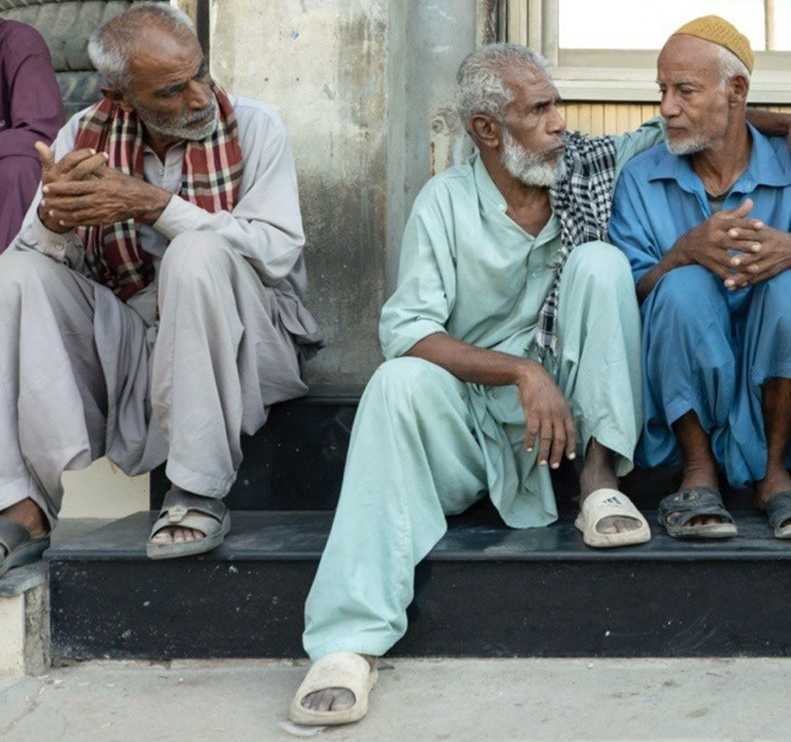
Around the world, ageism and age-discrimination often push older people to the margins of society, reinforcing harmful stereotypes that they are somehow less valuable, weak or dependent on others. This leaves them vulnerable to poverty, neglect and a loss of dignity, with their rights often overlooked. But despite the challenges that many face – such as lack of work and learning opportunities, and inadequate social protection – older people continue to thrive and contribute actively to their families and communities.
Through this campaign, Amnesty International will continue to amplify the voices of older people, advocate for the respect of their human rights, and raise awareness about the urgent need for a UN convention specific to older people. Growing older shouldn’t mean fading into the background. The stories captured here serve as a reminder that ageing is a journey we all share and that our rights must be guaranteed at every stage of life.
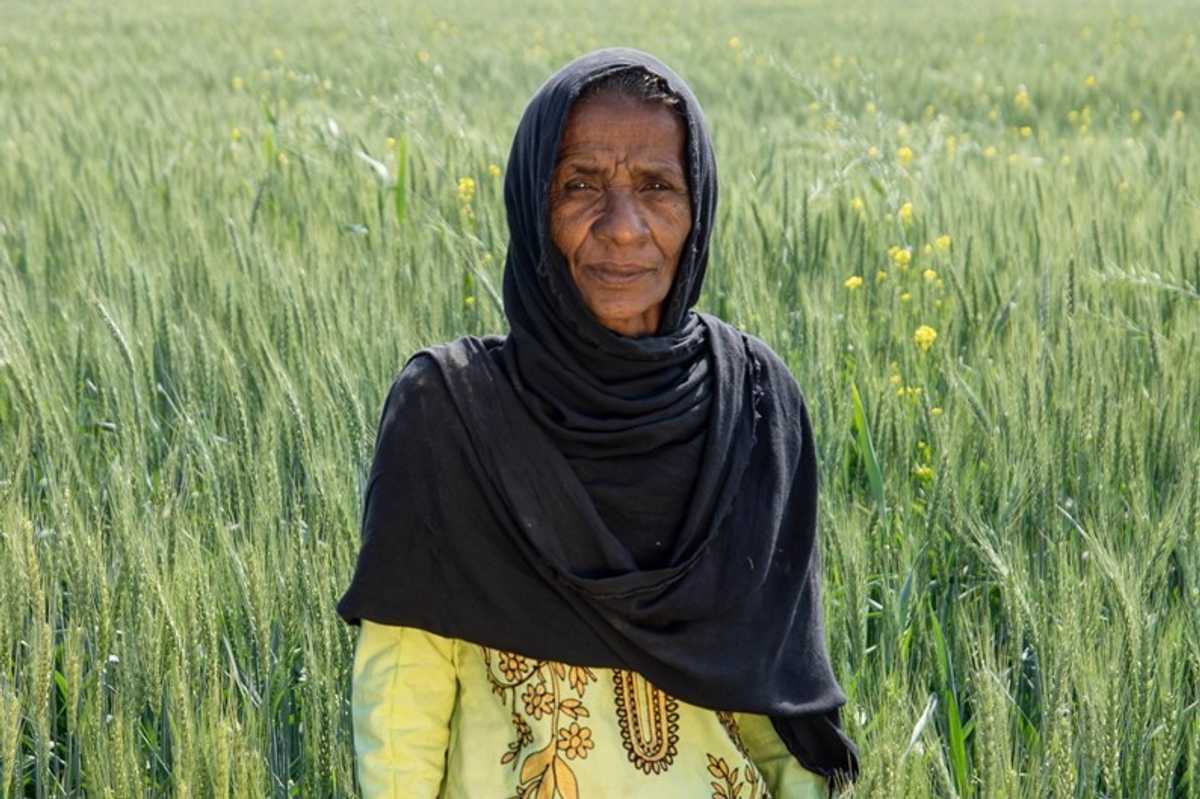
Hawa Kashkheli, 69, lives in Ibrahim Khaskheli village in Matiari district. She supports her family by managing livestock, looking after animals, helping her children, and caring for her grandchildren.
Thanks to an NGO literacy program, Hawa learned to read and write: “I was unable to read anything, even numbers, but now we can note down how many rupees we have earned, how many kilos (of cotton) we have collected.
“After learning from this literacy center, I feel young again. It has empowered me, and wherever I go, I feel different now… I never went to school, but I learned to read and write in just six months.”
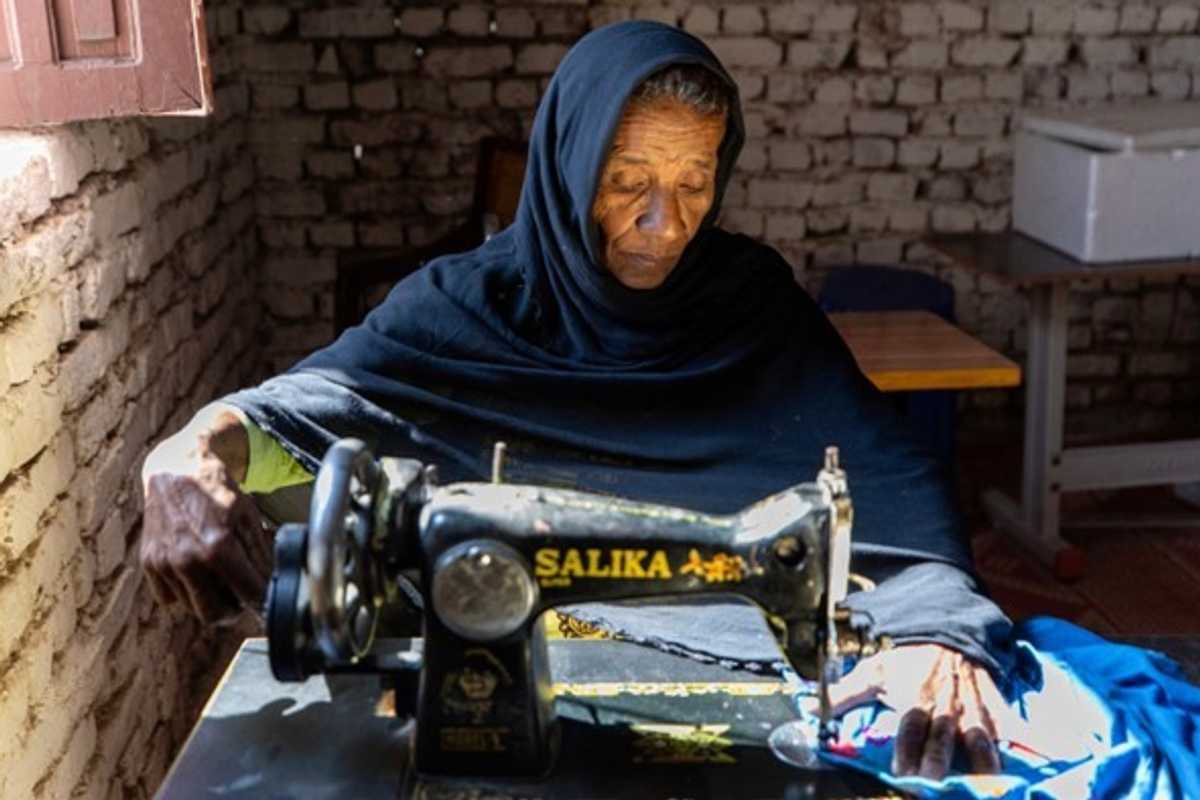
Hawa believes older people are often ignored unless they have money: “People don’t take elderly persons seriously. If they have something [money, property], people will take care of the older person; otherwise, there is no care for them.”
She hopes for more government support for older people, especially widows: “For older people in Pakistan, I want the government to support those who are helpless and whose children do not support them. The government should also provide shelter and monthly financial support. That’s my belief – that all older people, especially widows, should receive support.”
Despite the challenges, she remains determined to stay independent: “For me, old age means I should not be helpless. I shouldn’t be a burden on others.”
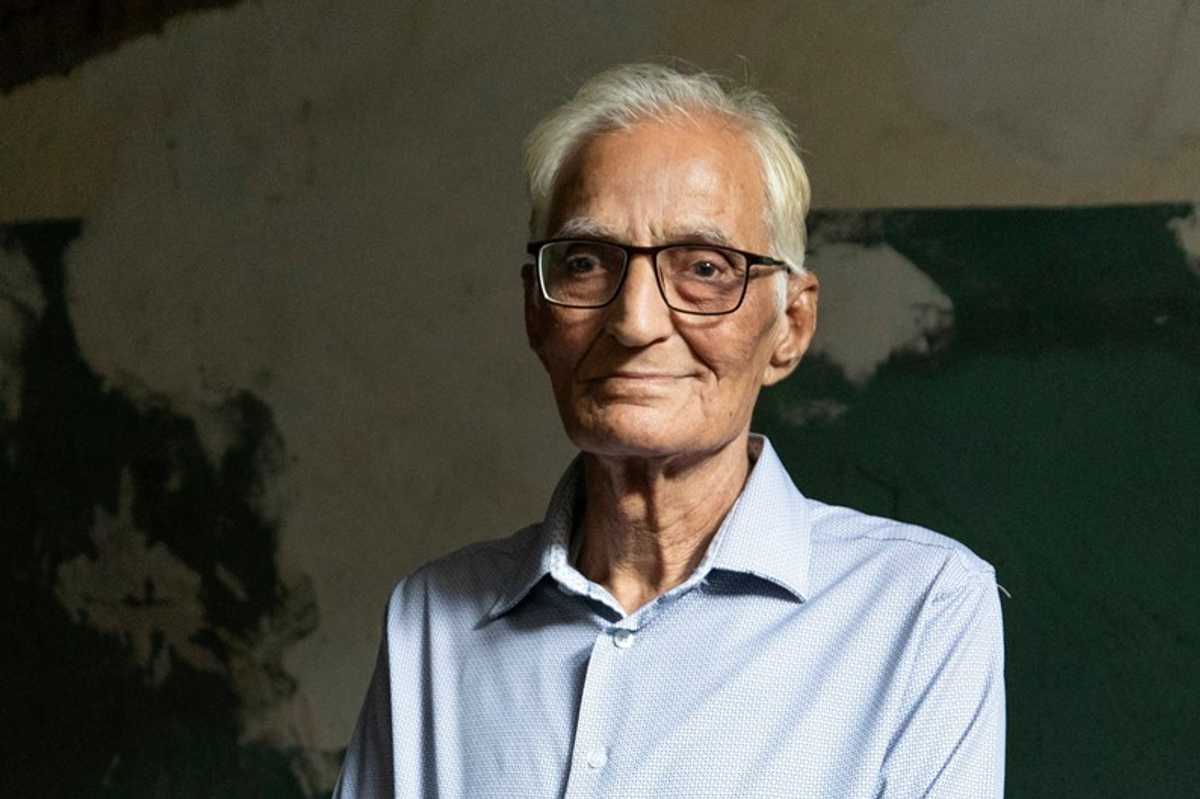
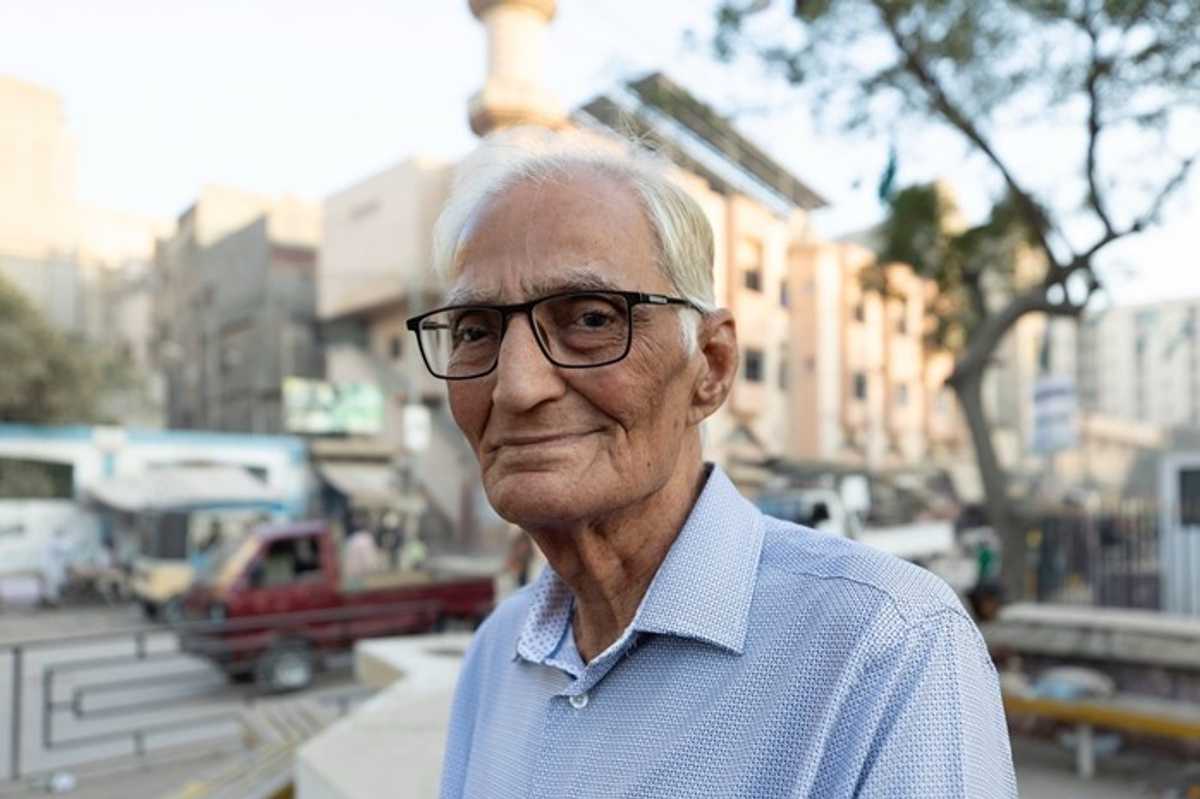
Ramzan Baloch, 80, is a retired government officer, social activist, and award-winning writer.
“People like me are not useful to the system. The government prefers younger people rather than older people. The government should support older people. They are citizens too. Look at the problems older people have; they have problems financially and with health. The government should help and should take measures.”
Ramzan is deeply grateful for his family: “They don’t treat me as an older person. They treat me as a normal person.”
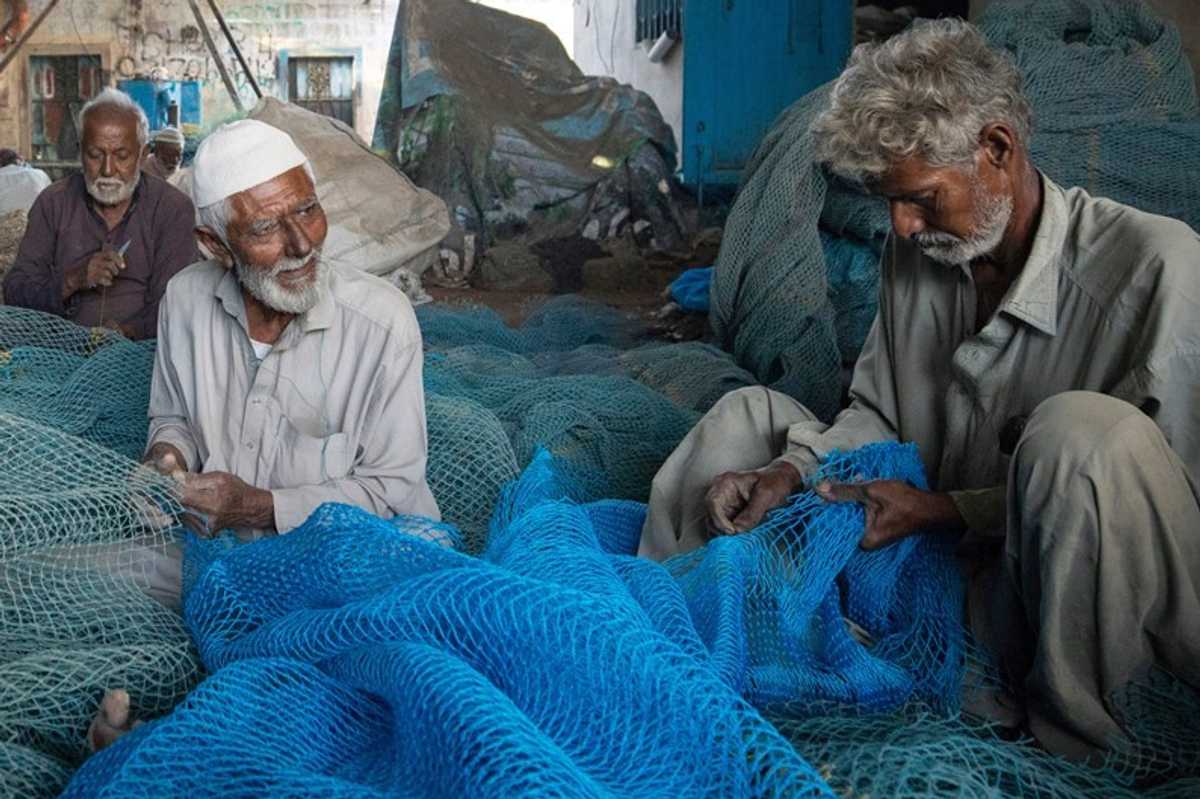
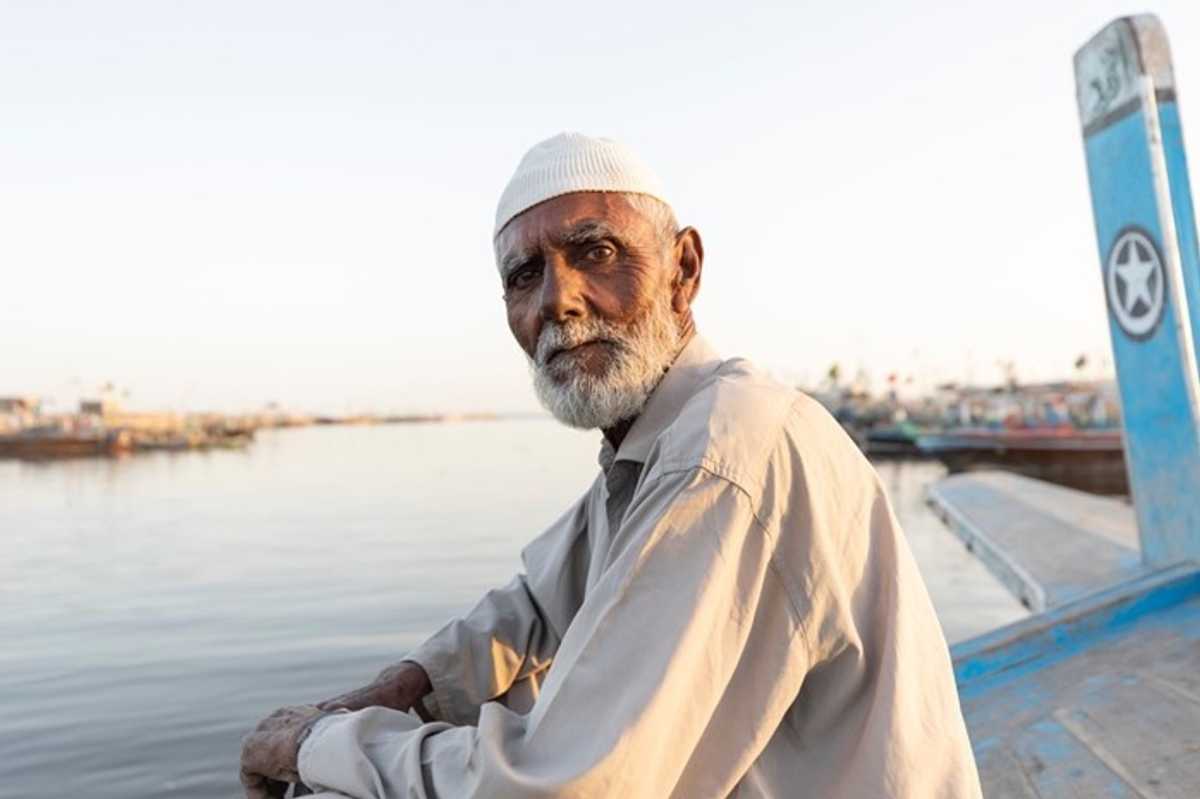
Mohammad Siddiq, 71, is a fisherman from Ibrahim Hyderi. He started fishing in the 1970s and continues to work daily. At times, he has had to choose whether to spend his wage on food or medicine.
“Medicines are the priority; without food, we can survive a couple of days. We have to work… if I have money in my pocket, I have respect. There are always ups and downs in life, but the most painful ones are when I don’t have any jobs.”
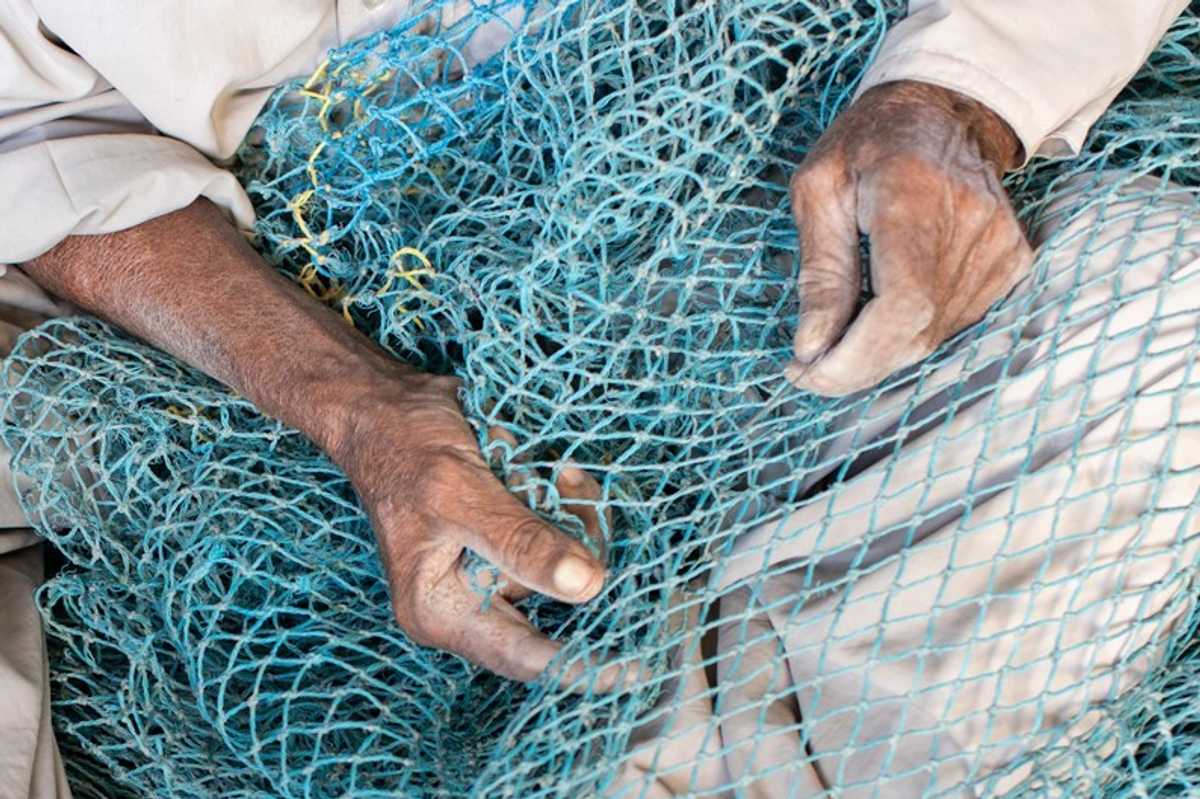
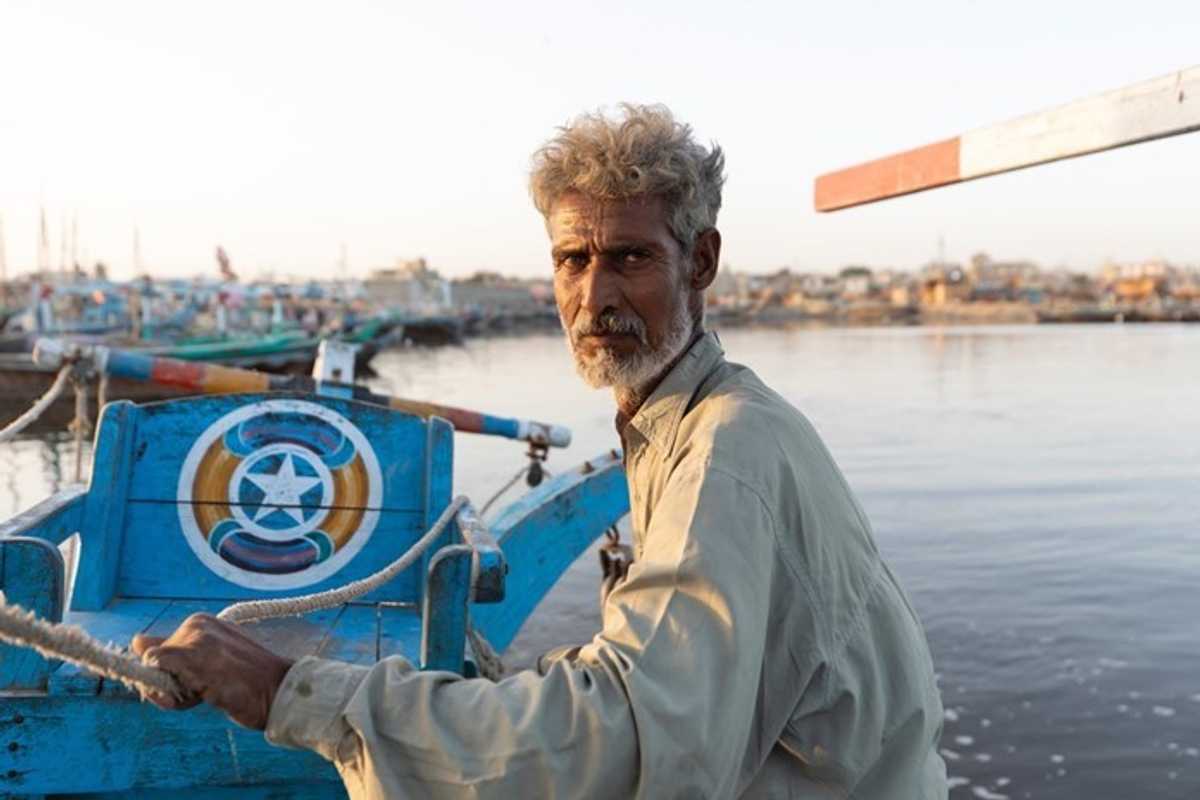
Mohammad Yusuf, 55, is a fisherman from Ibrahim Hyderi who owns his own boat. He was homeless as a child, and now faces the uncertainty of growing older without a pension.
“The number of fish is not enough. There is a visible decline. If there are no fish, we can’t sell, so we don’t get any money for the day. We feel we’re getting
older, our health is deteriorating... Because I’m an older person, I have respect in society, I get respect from people around me. If I put money aside, then what I gain with age is respect.”
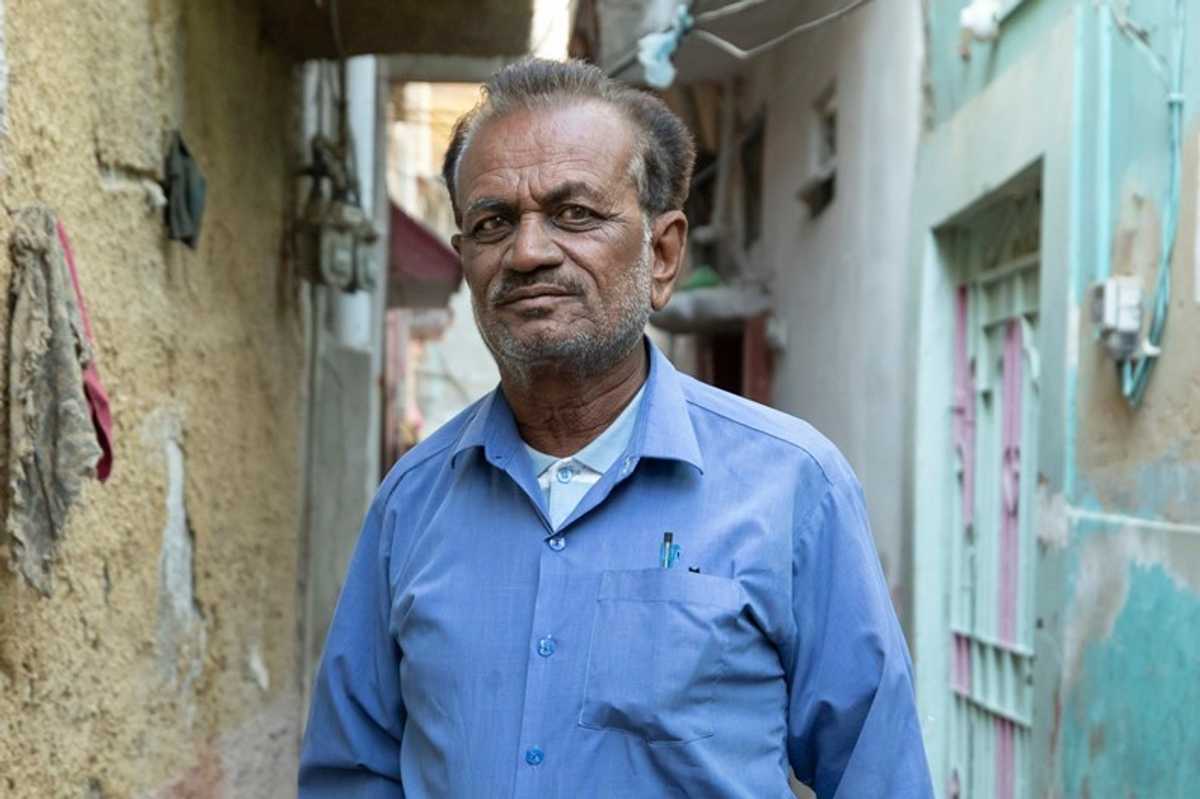
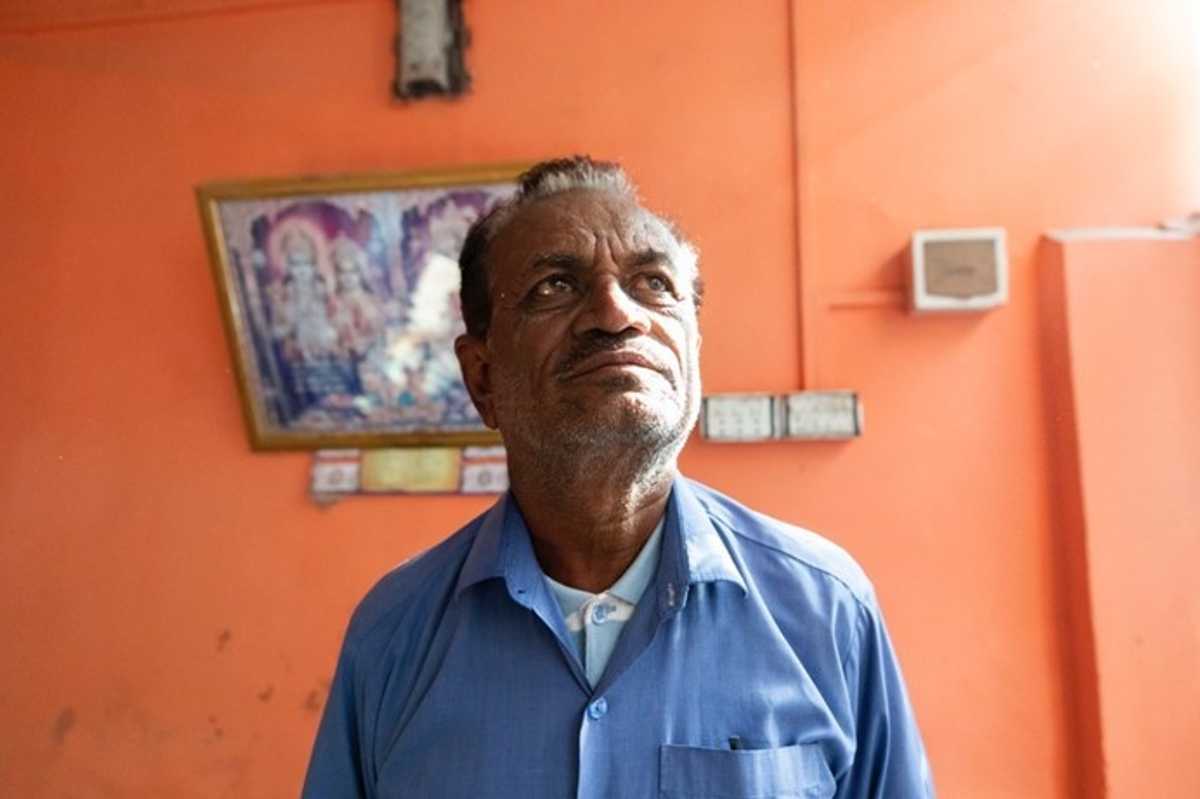
Sham Lal, 63, is a retired tailor and a community activist from Mauripur. He supports people in need, helping by organizing weddings, assisting with funeral services, and providing financial help when possible: “This is giving me strength, the fact that I’m supporting them.”
He considers himself fortunate compared to many others: “Older people are not given the support and help [by the government] they get in other countries.
There are two kinds of people: those who respect older people and those who don’t. I believe the majority respect older people. It’s all right to become an older person, and society should respect older people.”
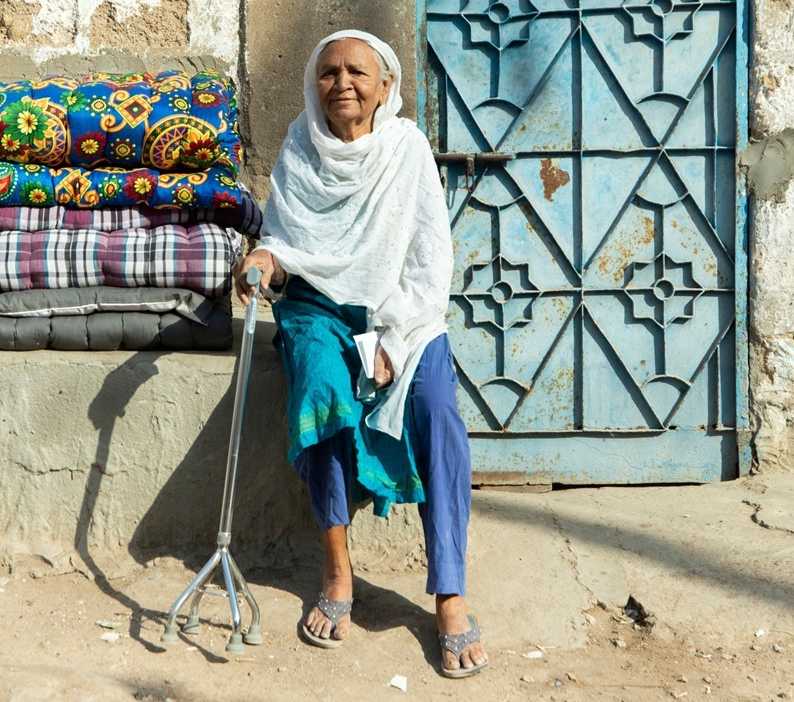
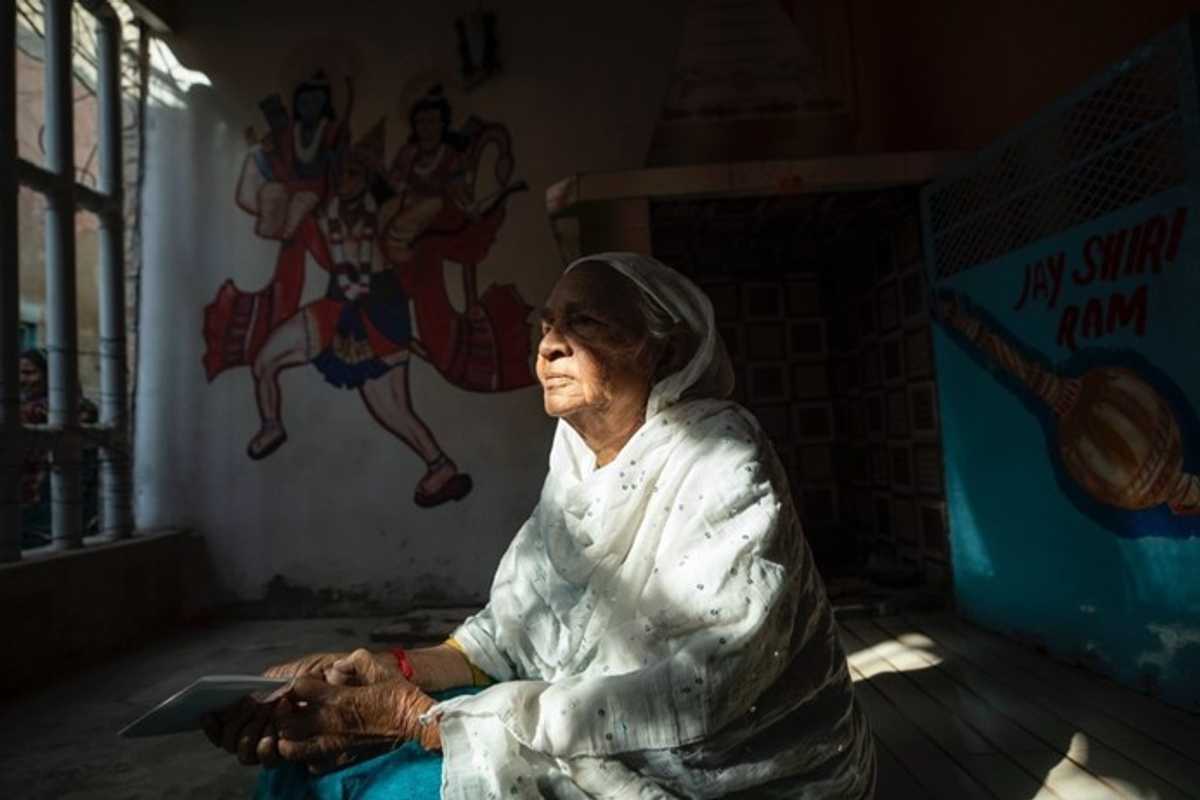
Gauri Bai, 77, is a widowed member of a marginalized Hindu community in Mau- ripur. She has two daughters, two sons and 12 grandchildren. The family survives on the income of her sons, though they struggle financially.
“If your family is there to support you, you are fine. Otherwise, you are helpless, you have a lot of difficulties. I know some older people who are not supported by their families, and they are facing too many difficulties.”
Despite her own hardships, Gauri continues to give: “I collect clothes that need sewing and distribute them to those in need. I do that for free. It helps me pass the time, and it helps the community.”
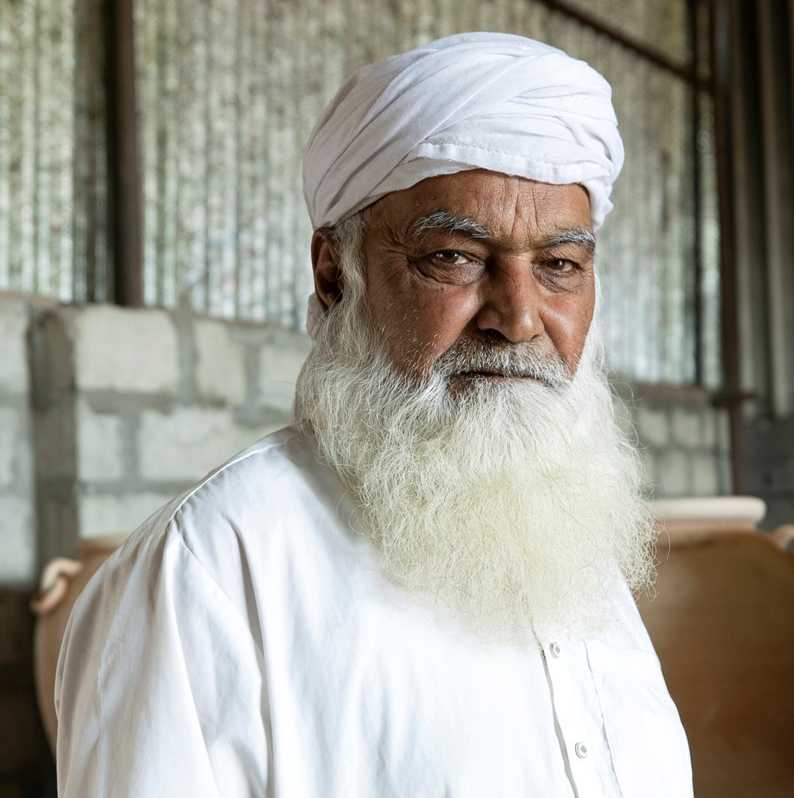
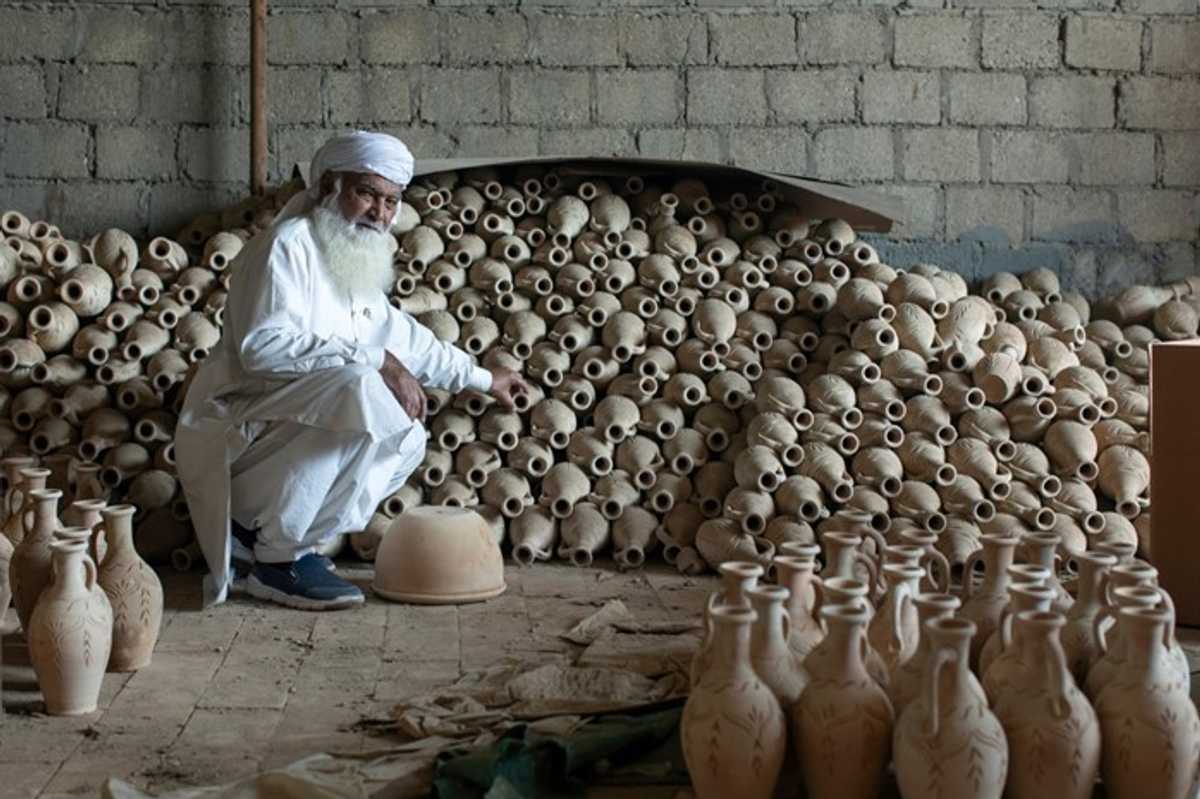
Mohammed Umar, 70, owns a pottery factory in New Karachi, continuing a family tradition that has spanned generations. Despite challenges like power outages that disrupt production, the factory’s income gives his family enough support.
As an older person in Pakistan, he acknowledges the struggle he faces: “Older people in Pakistan face a lot of difficulties. We don’t have a pension. In other countries, the system supports them. But in Pakistan, we don’t have that system in place.”
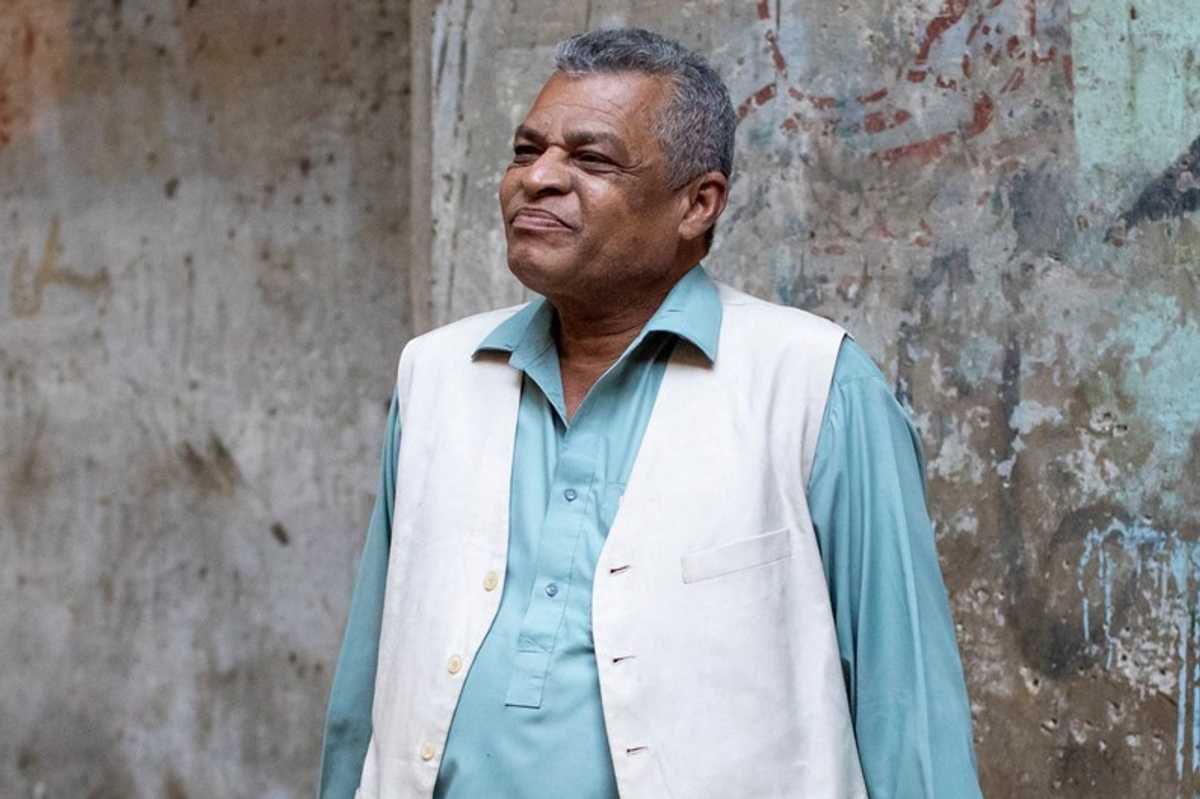
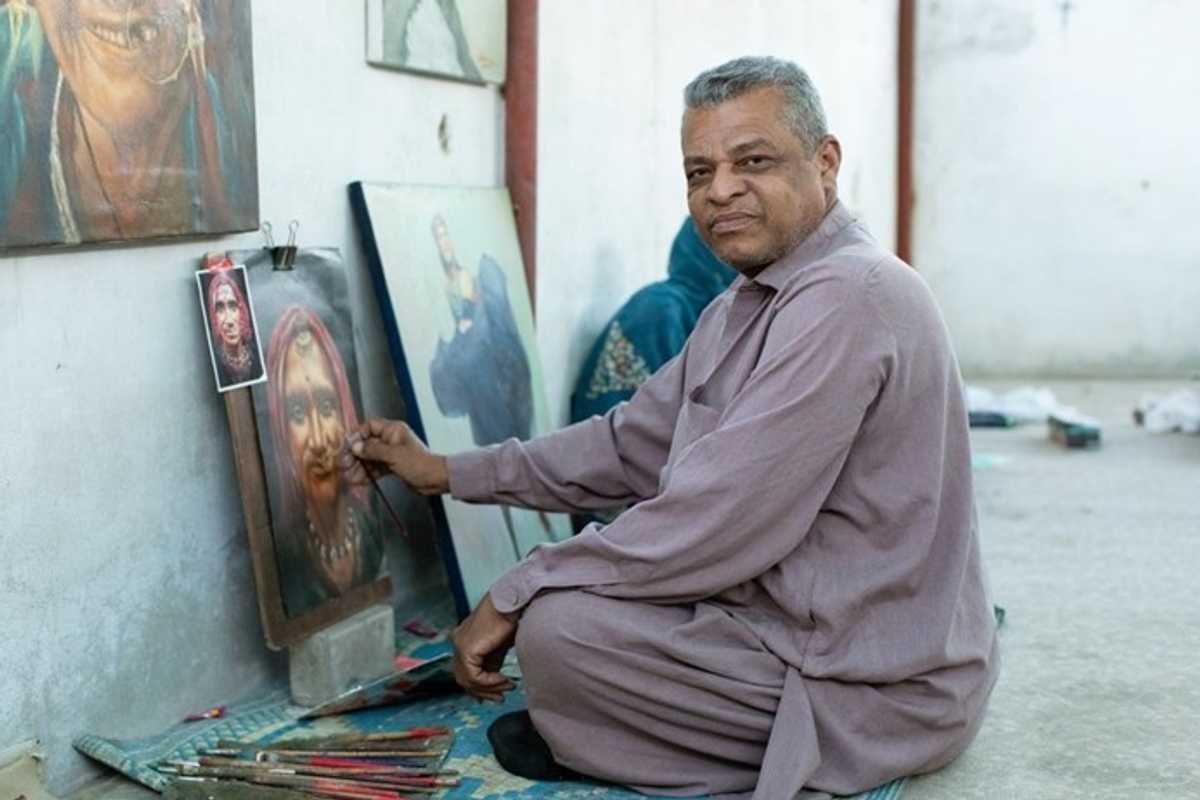
Ustad Jaan Mohammed, 61, is a retired former clerk at Pakistan Railways, who now teaches art as a volunteer at Mehrwan Academy in Lyari.
“A person is like a container. When you’re young the water goes in the container… and then at one point the container is full and it starts to overflood. That’s very much what old age is, it starts all flooding. It’s when you reach that point when you can give. I’m in that age where the container has overflooded. I’m now in this age where it’s all about giving.”
Ustad benefits from the financial security of a pension that supports both him and his family: “If I didn’t have a pension and a skill, then in older age I’d be sitting in front of a mosque, begging for someone to help me survive”.
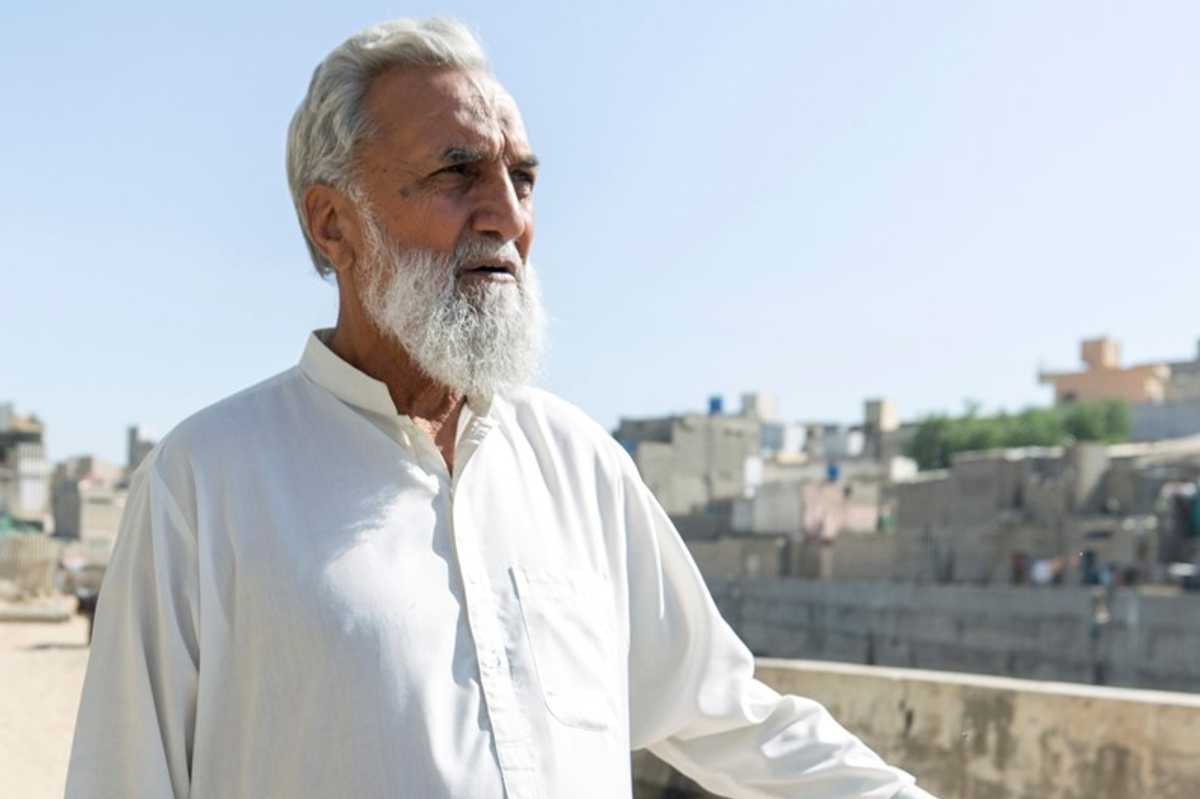
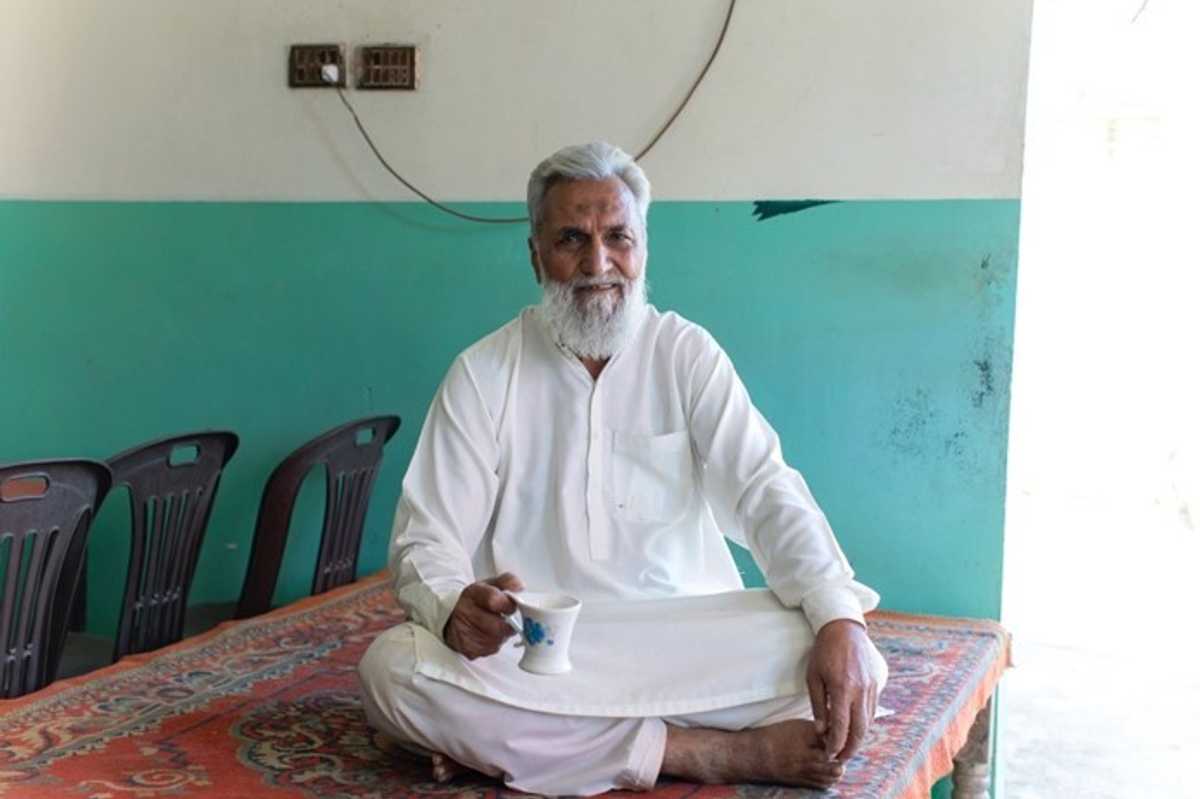
Nazir Hussain, 70, endures many of the challenges that older people in Pakistan face, such as rising living costs and difficulties in accessing healthcare. He also lost his home in 2022 when it was destroyed in an operation to widen the Gujjar riverbed.
He wants to keep learning – but like many older people, he finds the path to new opportunities difficult: “Sometimes I think about getting [new] skills to do something, because I think of getting knowledge of different kinds somehow, but I don’t know how that is possible.”
However, he remains defiant: “I see a bright future for myself. Despite the general difficulties, I’m positive. I feel young.”
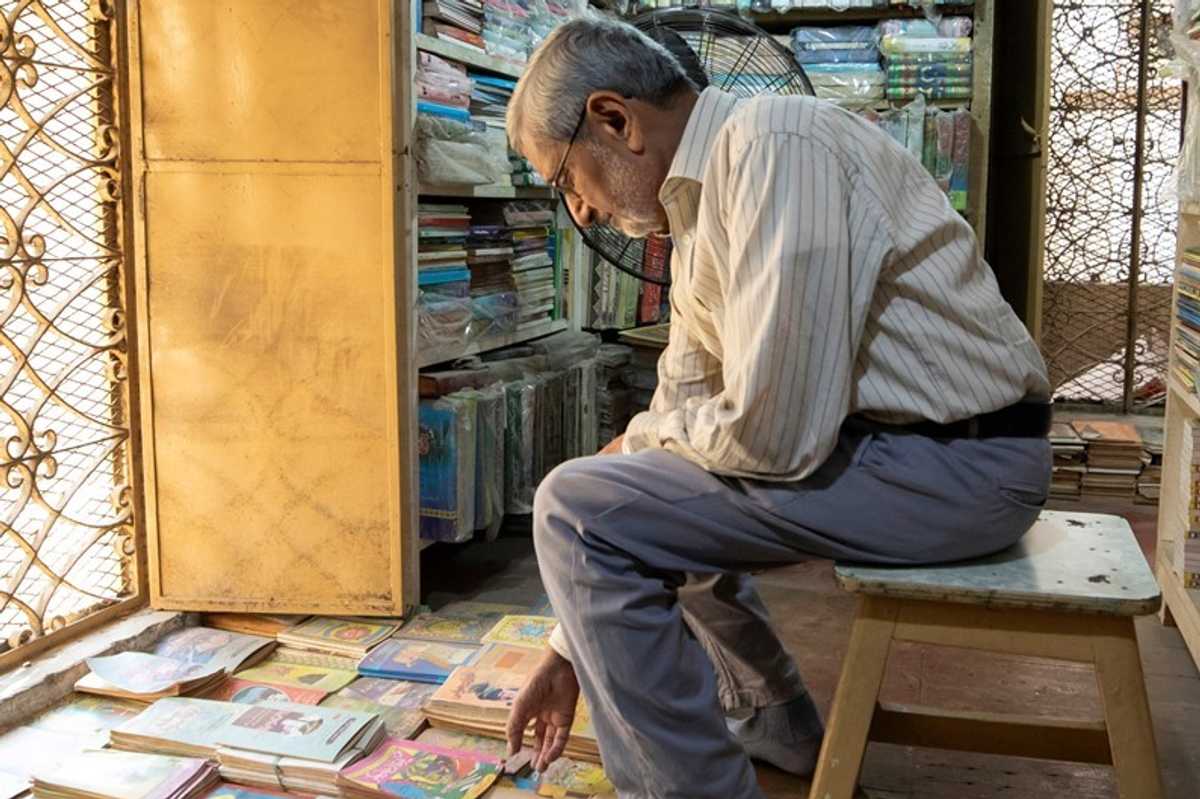
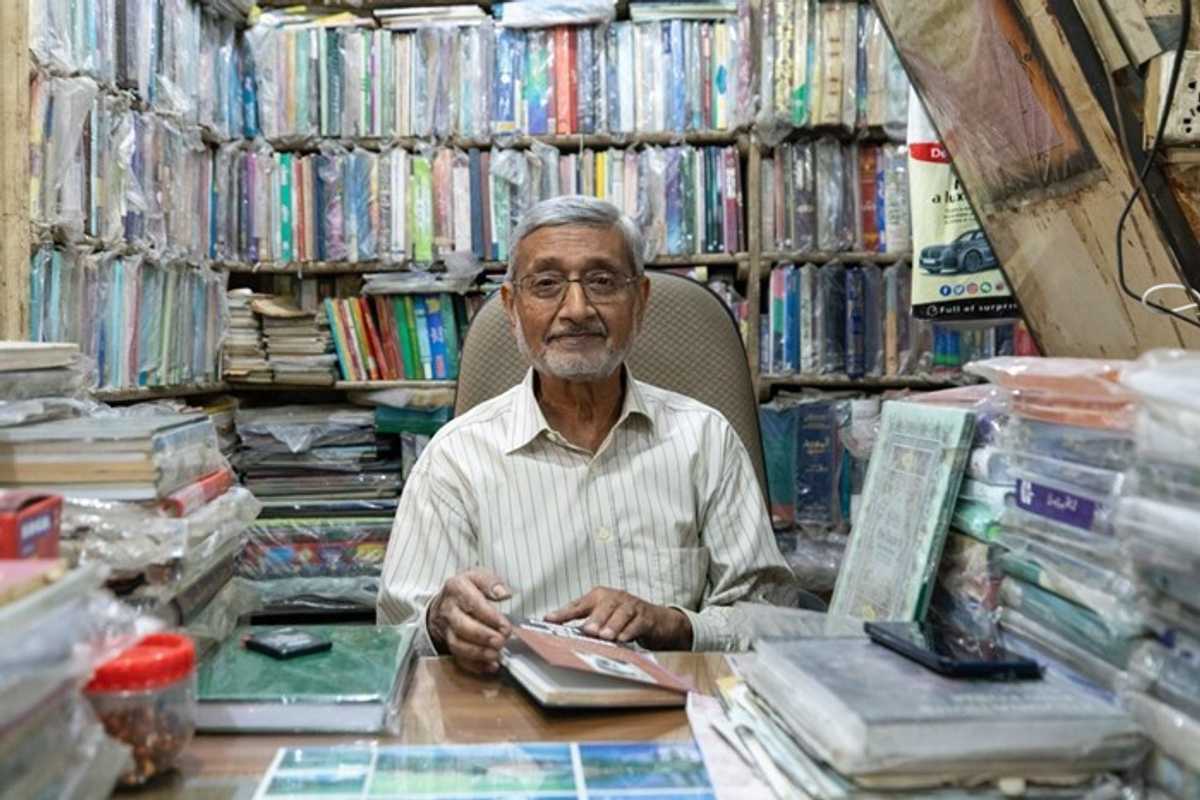
Habib Hussan Abbasi, 73, is the owner of Abbasi Kutub Khana, one of Karachi’s oldest bookshops, which was founded in 1909 by his grandfather.
Daily power outages make business difficult, often leaving the shop without electricity: “It affects my business, I have to use portable lights. I have to do my work... This has become a regular thing… what can I do?”
Although he faces uncertainty about the future of his beloved bookstore, he remains dedicated to it: “For as long as I survive, I will spend my time here.”







Comments
See what people are discussing